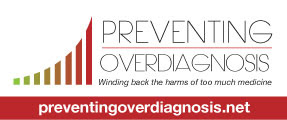The take-home message of the first lecture of my first clinical clerkship (Obstetrics and Gynecology) was that we should prescribe supplemental estrogen to all postmenopausal women to prevent cardiovascular disease. That lecture happened in 1999. Less than three years later, the Women's Health Initiative trial was stopped earlier than planned because it had already become clear to the data safety monitoring committee that estrogen therapy actually increased the risk of cardiovascular events, as well as strokes, breast cancer and pulmonary emboli.
If we couldn't protect older women's hearts, at least we could protect their bones by encouraging them to take vitamin D and calcium supplements starting in mid-life. "Don't wait until they develop osteoporosis, fall, and fracture their hips," I recall one of my mentors saying. By extension, no need to wait for the randomized trial, either. But in 2006, the Women's Health Initiative reported that calcium and vitamin D supplementation not only had zero effect on hip fracture rates, it increased the formation of kidney stones. Two years ago, the U.S. Preventive Services Task Force recommended against supplementation for the primary prevention of fractures. Finally, a pair of meta-analyses published in the BMJ earlier this year concluded that dietary calcium intake is not associated with fracture risk in community-dwelling adults and that increases in bone mineral density from calcium supplements are small and clinically insignificant.
In my relatively short career as a family physician, these two high-profile episodes represent a tiny fraction of what Drs. Vinay Prasad and Adam Cifu term "medical reversals" in their new book, Ending Medical Reversal: Improving Outcomes, Saving Lives. They provide other humbling examples, many of which I've blogged about over the years: mammography in women younger than 50, PSA screening, vertebroplasty for spinal fractures, coronary artery stenting for stable angina, and gown-and-glove precautions to prevent the spread of drug-resistant bacteria. In 2013, Prasad and Cifu collaborated with others on a review that found an astounding 40 percent of studies published during a 10-year period in the New England Journal of Medicine overturned an existing medical practice.
What can patients, physicians, and other health professionals do to make medical reversal less frequent and protect patients from useless or harmful tests and therapies? Prasad and Cifu don't advocate tinkering with the normal (and healthy) back-and-forth of the scientific process. However, they point out that in most clinical settings it makes sense to require a higher burden of proof before accepting the usefulness of a new treatment because "unlike pure science, medicine directly affects the lives of human beings." (For example, Prasad and a colleague determined that more than half of all cancer drugs approved by the FDA between 2008 and 2012, and 86% of those approved on the basis of a surrogate end point such as "tumor response rate," had either unknown effects or were later shown to have no effect on overall survival. Not good news for patients who were treated with those drugs.) And as I've argued before, the bar should be set even higher for screening tests and preventive medications offered to apparently healthy people who can only experience harm in the short term.
Prasad and Cifu make several excellent recommendations for reforms in how we apply the results of medical science. First, police sources of flawed data: industry-sponsored clinical trials, conflicted guideline developers, off-label marketing, hype about newer treatments always being better than established ones. Next, rethink the foundations of medical education: teach empiricism and evidence-based medicine (what works to help ill patients) before teaching basic science and mechanisms of disease (how therapies are understood to work). Third, value replication as much as discovery, and thoughtful narrative reviews as much as observational studies in decisions about academic promotion or tenure. Finally, make participation in randomized trials the default choice so that the majority of clinical questions, large or small, can be rapidly answered with experimental evidence.
In a recent research letter in JAMA Oncology, Prasad and a colleague reported that news articles about new cancer drugs employed superlatives such as "breakthrough," "miracle," "game changer," "groundbreaking," and "revolutionary" with ridiculous frequency, since more than half of the drugs discussed had not received FDA approval for any indication and several were supported by no human data whatsoever. I believe that this practice largely reflects lazy or uninformed health journalism. So when I describe Ending Medical Reversal as revolutionary, I don't use the term lightly. Go out and read it - right now.
skip to main |
skip to sidebar

Common sense thoughts on public health and conservative medicine from a family doctor in Lancaster, PA.
Search This Blog
Blog Archive
-
▼
2015
(66)
-
▼
November
(6)
- The best recent posts you may have missed
- Two perspectives on the PSA screening pendulum
- How care teams can support shared decision making ...
- How care teams can support shared decision making ...
- Book Review: "Ending Medical Reversal" is revoluti...
- Compared to some pills, cognitive behavior therapy...
-
▼
November
(6)
About Me

- kennylin
- I am a board-certified Family Physician and Public Health consultant practicing in Lancaster, PA. I am also Deputy Editor of the journal American Family Physician and teach residents and medical students at Lancaster General Health / Penn Medicine Family Medicine Residency program. I am paid to provide independent editorial and medical consulting services to the American Academy of Family Physicians, WebMD, and others. However, the content of this blog reflects my personal views only, and does not represent the views of any medical institution, publisher, or the AAFP.











